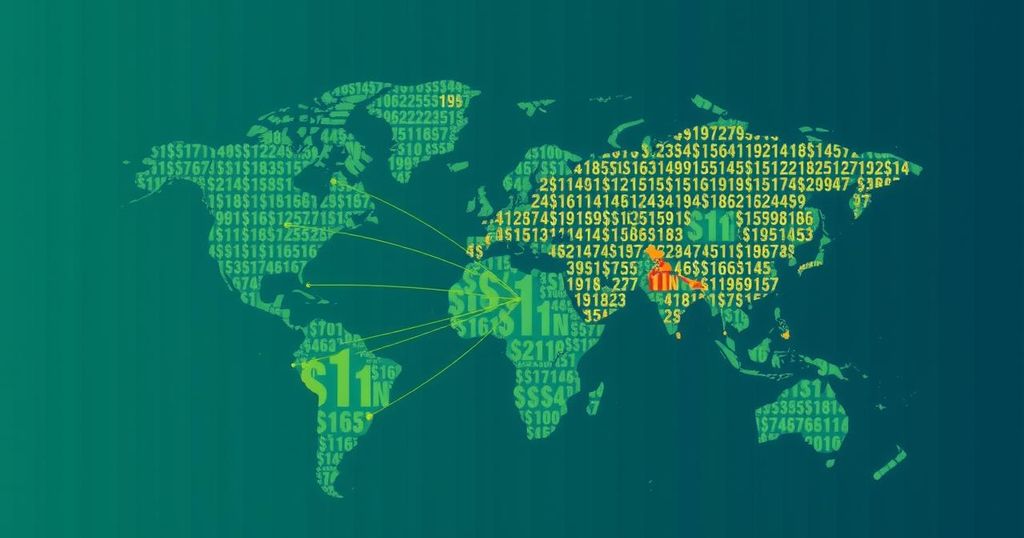The U.N. report reveals a significant shortfall in funding for climate adaptation in developing countries, citing a need for $359 billion annually versus the $28 billion provided in 2022. The discussion on financial aid for adaptation is expected to dominate the upcoming COP29 climate talks in Azerbaijan, necessitating urgent action to address climate impacts on vulnerable populations.
According to a recent report from the United Nations, financial assistance extended to developing nations for climate adaptation remains significantly inadequate, falling short of the annual requirement of $359 billion. Despite achieving the largest increase in funding since the Paris Agreement in 2015, with contributions rising to $28 billion in 2022, it remains insufficient for mitigating the severe impacts of climate change. As nations prepare for the COP29 climate talks in Azerbaijan from November 11-22, the allocation of financial resources from developed countries to their developing counterparts is anticipated to be a critical topic of discussion. UNEP Executive Director Inger Andersen highlighted the urgent need for adaptation funding, stating, “Climate change is already devastating communities across the world, particularly the most poor and vulnerable.” The report underscores that effective adaptation measures encompass construction of flood defenses, urban tree planting for heat mitigation, and enhancing resilience of infrastructure against severe weather events. As of now, while many countries possess policies or strategies for adaptation, the effectiveness and quality vary greatly, with some fragile states lacking any form of strategic planning. Additionally, another U.N. report released last month warned that global warming trends suggest the world may exceed its target of limiting the temperature increase to 1.5 degrees Celsius, instead approaching a rise of 2.6-3.1 degrees Celsius.
The report addresses the significant gap in financing essential for developing countries to adapt to the harmful effects of climate change—a challenge that is becoming increasingly urgent given the global rise in extreme weather events, which have affected millions worldwide. Developed nations’ commitments to financial support are thereby under scrutiny, particularly in light of the upcoming COP29 climate negotiations, where pledges of adaptation financing are expected to be pivotal. This situation demands not only more financial resources but also enhanced strategic support to effectively utilize those funds for adaptation measures.
In summary, the U.N. report emphasizes the critical financial shortfall in supporting climate adaptation efforts in developing countries, with a glaring need for annual funding to reach $359 billion. Although an increase in financing has occurred, it remains inadequate. The upcoming COP29 talks will provide a forum for addressing these financial deficits and establishing actionable strategies to strengthen adaptation policies globally, underscoring the urgency of this issue.
Original Source: www.swissinfo.ch






